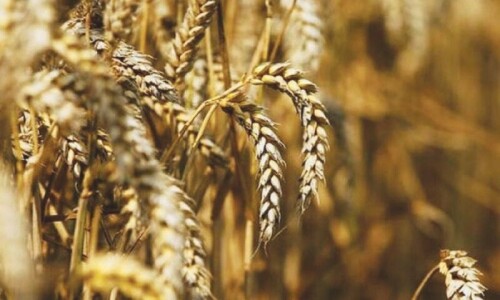CHITRAL, Nov 24: The valleys of Chitral have witnessed a distinct variation in climatic conditions over the last four decades, shortening the duration of winter by months and reducing its severity.
Senior citizens, mostly those in their seventies and eighties, told Dawn here that Chitral’s climate had undergone a tangible change over decades and that could be seen by the lower snowfall the valleys received these days compared with the past.Hazrat Noor, a local retired schoolteacher, said the magnitude of snow had drastically reduced in the sub-valley of Oveer, which used to receive five to six feet of snow in the winter when he was a schoolboy in early fifties.
He said in the past, heavy snowfall used to restrict mobility in the area during January and February.
He recalled how men braved the ordeals of clearing the roofs of their mud houses during snowfall, which continued for more many days incessantly.
Feeling nostalgic for his past, Mr Noor recalled how villagers passed their days and nights in a delight manner and prepared special dish to share with each other.
Gul Afas Khan, a farmer in his eighties from Terich valley close to Terich Mir peak of Hindukush range, said in the past, snowfall began in November and lasted until March, but the duration had reduced to two months.
He said during the troublesome days of the extended winter, it was quite unusual for the inhabitants of the valley to leave or enter there as the mountainous tracks used to be closed due to snow, while the vehicular traffic continued round the year.Mr Khan said the people of the areas virtually spent the days in hibernation as heavy snow and blizzard hit the valley continuously confining its dwellers to their houses.
Charshambe Khan from Laspur valley said heavy snowfall kept the Shandur Pass (10,230 feet high and linking Chitral with Gilgit-Baltistan) closed for more than six months of the winter season, while it had reduced to three months only.
When contacted, Haider Ali, a scientist associated with a non-government organisation, confirmed that average temperature in Chitral had increased reducing the magnitude of precipitation.
He attributed the phenomenon to global warming, which, he said, had cast instant ramifications on the climate of Chitral surrounded by hundreds of peaks of Hindukush ranging from 4,000 metres to 7,708 metres.
Mr Ali said the extended winter of five months had virtually reduced to two months over the decades.
Former manager of International Union Conservation of Nature Dr Inayatullah Faizi declared the impact of the shorter winter season and the lesser snowfall pleasant for agriculture.
He said cereal crops were adversely affected by heavy snowfall in the valley as their seedlings withered away or remained in feeble state for want of heat and that wheat was cultivated in many areas of the valley.
Mr Faizi said the produce of cereal crops and fruits had increased manifold over the years due to short span of winter season. He said snowfall massively damaged roads in the remote sub-valleys.












































Dear visitor, the comments section is undergoing an overhaul and will return soon.